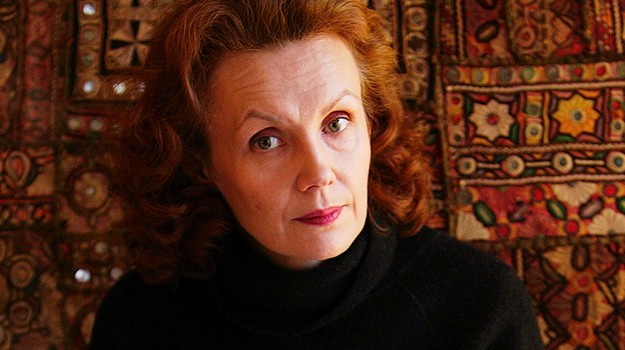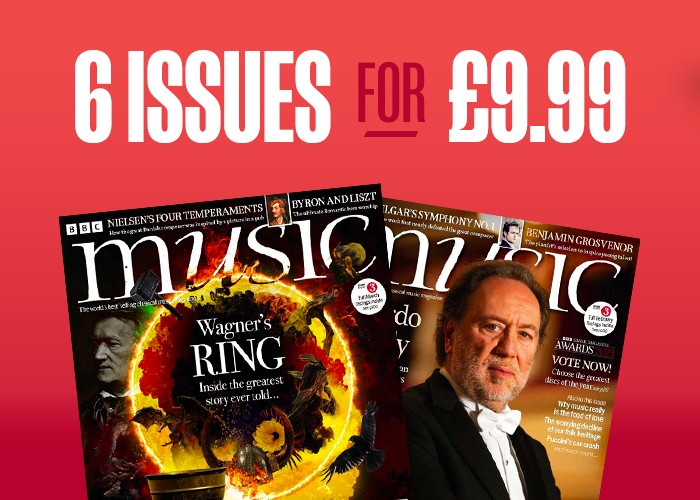Kaija Saariaho: Six of her best works
A guide to the best pieces by the adventurous and atmospheric Finnish composer, Kaija Saariaho

Born in Helsinki in 1952, Kaija Saariaho did not come from a typically musical background. The daughter of a metal worker, her break into composition came after studying at the Sibelius Academy with Paavo Heininen, and later in Freiburg with Brian Ferneyhough. Her diverse repertoire includes operas, orchestral works and experimentation with electroacoustic music. Here’s our pick of six of her best pieces.
Best works by Kaija Saariaho
L’Amour de loin
Saariaho’s first opera, L’Amour de loin tells the story of Jaufré Rudel, a troubadour longing for a ‘love from afar’. When a pilgrim tells him that such a love really exists in Tripoli, Jaufré begins his pursuit, becoming sick with anguish on the journey. A beautifully dark and brooding opera, L’Amour de loin received its premiere in 2000 at the Salzburg Festival, a co-production with the Théatre du Chatelet, Paris and the Santa Fe Opera.
Recommended Recording:
Saariaho: L'Amour de loin
Ekhaterina Lekhina (soprano), Marie-Ange Todorovitch (mezzo-soprano), Daniel Belcher (tenor); Berlin Radio Chorus; Berlin Deutches Symphony Orchestra/Kent Nagano Harmonia Mundi HMC801937/38
Graal théâtre
Written as a concerto for violin and orchestra in 1994 and arranged in 1997 for chamber orchestra, Graal théâtre takes its name from the book by Jacques Roubaud. According to Saariaho, ‘the title expresses the tension between the efforts of the composer when writing music and the theatrical aspect of a performance.’
The piece’s two movements are characterised by the gritty and sometimes aggressive sound of the solo violin, originally performed by Latvian violinist Gidon Kremer, to whom the piece is also dedicated.
Recommended Recording:
Kaija Saariaho: Graal théâtre / Château de l'âme / Amers
Dawn Upshaw (soprano), Anssi Karttunen (cello), Gidon Kremer (violin), Avanti!, BBC Symphony/Esa-Pekka Salonen Sony Classical G010001403109B
Verblendungen
This piece sees Saariaho experimenting with electroacoustic music by manipulating pre-recorded sounds on a tape, resulting in eerie textures. Verblendungen – commissioned by the Finnish Broadcasting Company – was written in 1984 and used a tape produced in the GRM Digital Studio for treating sounds. Saariaho has created her own unique string orchestra by using two manipulated violin sounds which are layered over a chamber orchestra.
Recommended recording:
A Portrait of Kaija Saariaho
Finnish Radio Symphony Orchestra/Esa-Pekka Salonen BIS - BISCD307
Orion
This haunting orchestral piece is inspired by the titular figure in Greek mythology, the mortal son of Poseidon whom Zeus placed in the sky as a constellation after his death. Split into three movements – Memento Mori, Winter Sky and Hunter – Orion immediately seems to evoke the vastness of space through its drawn-out ethereal strings and sudden passages of dramatic orchestral eruptions, all of which come to an abrupt finish with a closing triangle chime. Composed in 2002 for Franz Welser-Möst and the Cleveland Orchestra, it is Saariaho’s largest purely orchestral work to date.
Recommended recording:
Saariaho: Notes on Light / Orion / Mirage
Karita Mattila (soprano), Anssi Karttunen (cello), Orchestre de Paris/Christoph Eschenbach Ondine ODE11302
Petals
Petals – a 10-minute piece for solo cello and live electronics – is impressive, if a bit harsh on the ears. The performer utilises a whole range of different tones from airy harmonics to nail-bitingly rough bass notes, sharp tremolos and glissandos. Petals was composed in 1988 and is the natural stylistic successor to 1987’s Nymphea, a comparable work for string quartet and electronics.
Recommended recording:
Kaija Saariaho: Chamber Music
Scott Roller (cello), Thomas Neuhaus (electronics) Kairos KAI0012412
Du Cristal … à la fumée
Du Cristal … à la fumée is a single orchestral diptych formed by two separately commissioned pieces – translated as ‘From crystal’ and ‘…into smoke’. The pieces can be played separately or together, with the closing cello trill of Du Cristal leading seamlessly into the introduction of its successor. In Saariaho’s own words, ‘to my way of thinking, Du Cristal … à la fumée is a single work, two facets of the same image, but both drawn in, living and independent.’ Du Cristal … à la fumée is deeply cinematic and, like other works such as Orion, is full of ghostly strings and sudden orchestral timpani-driven crescendos.
Recommended recording:
Saariaho: Du cristal - …à la fumée - 7 Papillons - Nymphéa
Anssi Karttunen (cello), Los Angeles Philharmonic Orchestra/Esa-Pekka Salonen Ondine ODE1047-2
Words by Gareth Thomas




